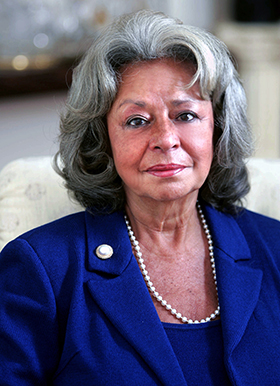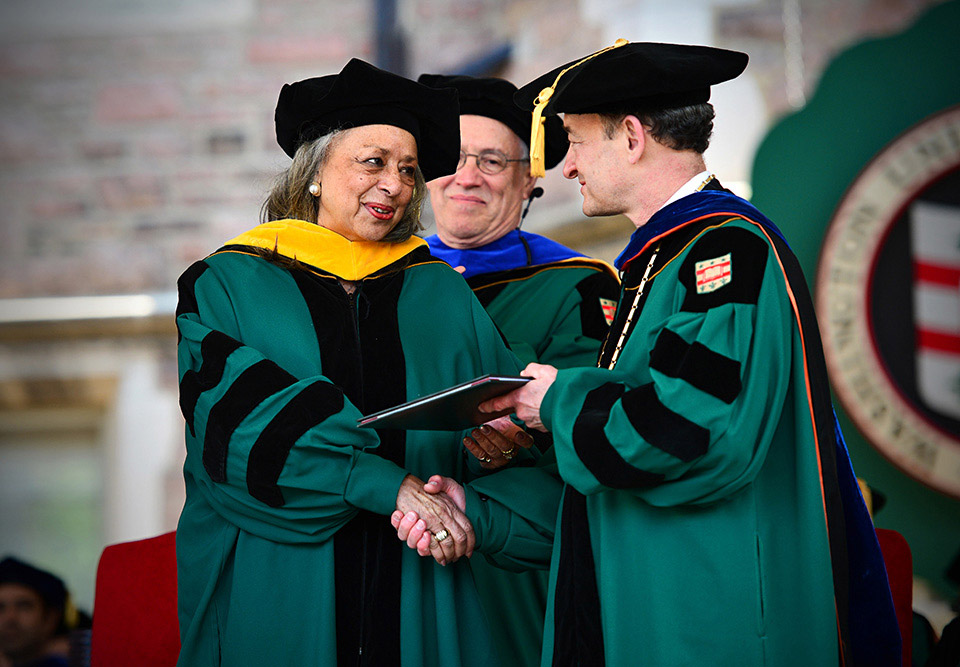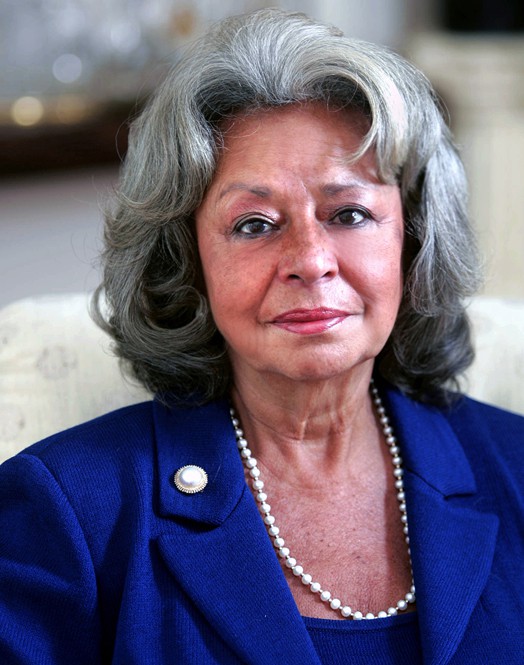
Vivian W. Pinn
As the first full-time director of the Office of Research on Women’s Health at the National Institutes of Health (NIH), Vivian W. Pinn, MD, worked to ensure the inclusion of women and minorities in NIH-funded research; to educate and impress upon the scientific community the importance of sex differences in research and health care; and to develop programs and policies to advance women in biomedical careers. Pinn received an honorary doctor of science degree in 2014.

Expanding the scope of research on women’s health
Dr. Pinn served as director from 1991 until her retirement in August 2011. She also was NIH’s associate director for research on women’s health from 1994-2011.
A highly regarded pioneer in women’s health, Dr. Pinn was the first African-American woman and only the third woman overall in the United States to chair an academic department of pathology when she was named to that post at Howard University College of Medicine in 1982. She remained in the position until 1991. She came to Howard from Tufts University School of Medicine, where she had been an assistant professor of pathology and assistant dean of student affairs.
“I am proud and grateful to have been able to be a witness and a partner in the efforts to build understanding of the importance of biomedical research, and that with all of the advances of technological, molecular and biosocial lenses focused on health and science, that the recognition of the very basic importance of sex and gender is finally gaining in the design and interpretation of biomedical investigation,” Dr. Pinn said, reflecting on her career.
Two grant programs Dr. Pinn championed have supported numerous women’s health researchers at Washington University, including one that prompted Scott J. Hultgren, PhD, the Helen L. Stoever Professor of Molecular Microbiology, to create the university’s Center for Women’s Infectious Disease Research.
“Working with Dr. Pinn changed my life,” Dr. Hultgren wrote in a letter nominating her for the honorary degree. “She has been a beacon of light for women’s health research in the United States, and her strong leadership has paved the way for innovative research programs funded by NIH.”
Dr. Pinn hails from Lynchburg, Virginia, where she attended segregated schools. She earned her bachelor’s degree from Wellesley College in Massachusetts in 1963 and her MD in 1967 from the University of Virginia School of Medicine, where she was the only woman and only minority in her class.
The recipient of 12 honorary degrees, Dr. Pinn emphasized the connection she feels with Washington University’s research community as she receives her 13th such award.
“Washington University has provided such scientific import and support to the national efforts to address sex and gender as a credible and legitimate pursuit in biomedicine and has exemplified the merits of mentoring in furthering the successful nourishing of young scientists,” she said. “So the recognition really should be in reverse — recognition of how much the faculty, staff, administration and scientists there have contributed and advanced the efforts that I believe in.”
Among her numerous other honors and awards, she was elected a fellow of the American Academy of Arts and Sciences in 1994 and named a member of the Institute of Medicine in 1995.
Emphasizing the value of mentorship
But what she’s most proud of, she said, are the people she’s had the opportunity to mentor and teach.
“I am most proud of the achievements of the many who I have taught or mentored over the years whose own successes and accomplishments have far exceeded my own,” she said. “I truly believe that the measure of one’s success is not so much the number of awards but rather the quality of the impact on those a person has been in a position to assist.”
D r. Pinn’s reach, however, extends far beyond those she has mentored. She has been a prolific speaker and also has served as a public policy consultant, offering testimony at Congressional hearings and White House briefings on women and minorities’ health.
r. Pinn’s reach, however, extends far beyond those she has mentored. She has been a prolific speaker and also has served as a public policy consultant, offering testimony at Congressional hearings and White House briefings on women and minorities’ health.
She has authored hundreds of publications in scientific journals and has penned book chapters on renal disease, minorities in medicine, women’s health research and related issues. She has been on several editorial boards and remains on the board of the Journal of Racial and Ethnic Health Disparities.
Since her retirement, Dr. Pinn has been named senior scientist emerita at the NIH Fogarty International Center, which focuses on global health.
“My current and future career goals are simply to continue my lifelong challenges to encourage and inspire the passion for science, public policy and other modalities that can contribute to the betterment of human welfare for all people through an ever-renewing cadre of physicians and scientists who will improve human welfare and quality of health and well-being,” she said.
Dr. Pinn lives in Washington, D.C.